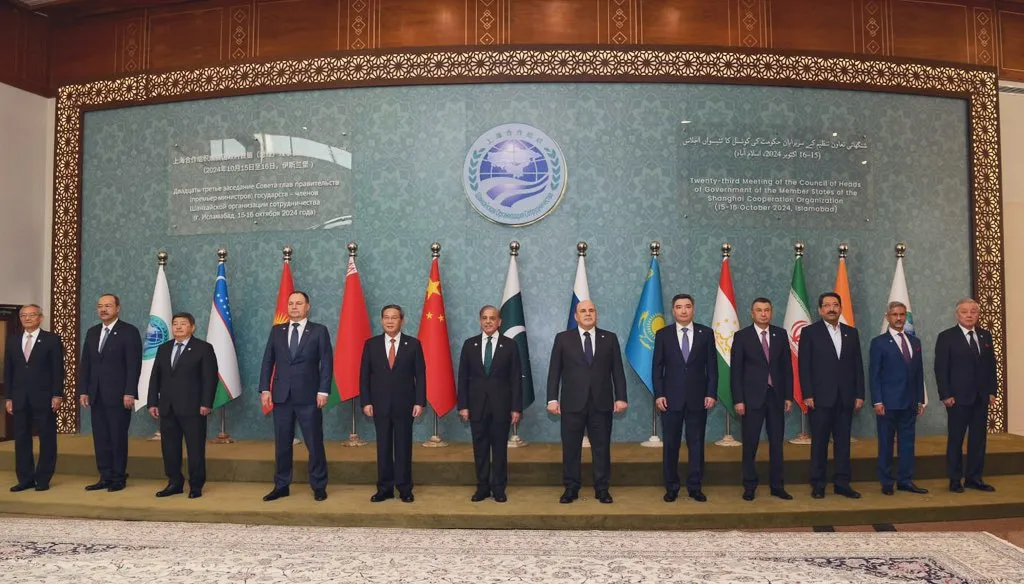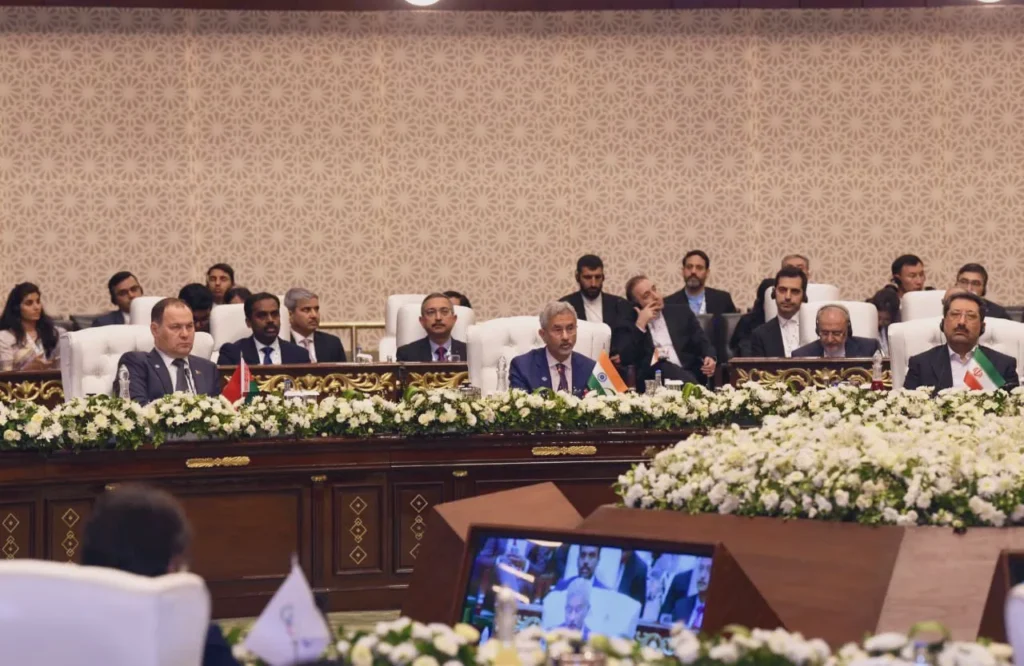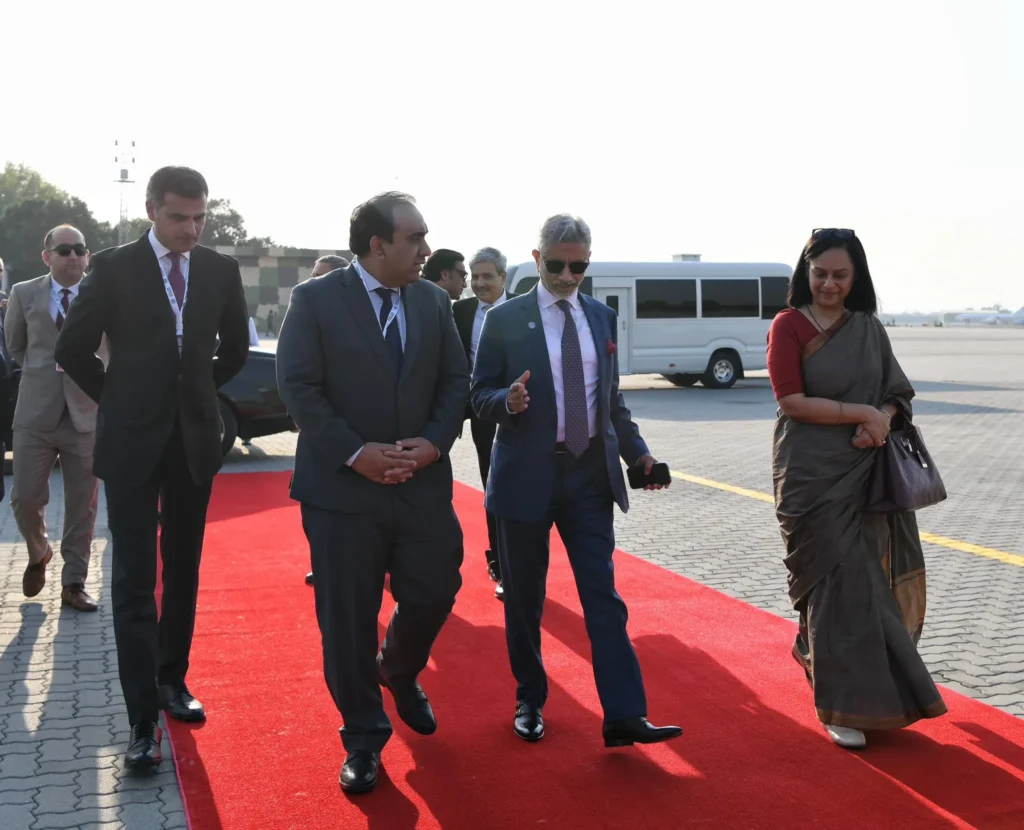First Crack in Deep Freeze? India and Pakistan Could Set Stage for Baby Steps Ahead
Table of Contents (Clickable link)
Explore potential thawing relations between India and Pakistan as recent developments hint at the first cracks in longstanding tensions, paving the way for incremental progress towards peace.
As India and Pakistan navigate their complex relationship, the real question lies in whether Delhi and Rawalpindi can manage the many domestic challenges that threaten even a limited engagement.
During External Affairs Minister S. Jaishankar’s recent visit to Pakistan for a Shanghai Cooperation Organisation (SCO) meeting, both nations exhibited a newfound civility. This contrasts sharply with last year’s Goa meeting, where Jaishankar and Pakistan’s foreign minister, Bilawal Zardari Bhutto, did not even shake hands due to heightened tensions over terrorism and Kashmir.
Signs of Hope
This week’s meeting featured handshakes and informal discussions between Jaishankar and Pakistan’s Foreign Minister and Deputy Prime Minister, Ishaq Dar. Such gestures may signal the beginning of a thaw in relations, potentially leading to the resumption of cricket ties and other small steps aimed at rebuilding trust after nearly a decade of frozen interactions.
However, initiating dialogue is just the first hurdle; sustaining it is much more complicated. Structural impediments have historically hampered many promising beginnings. Key concerns remain: India’s demand for an end to cross-border terrorism and Pakistan’s insistence that Kashmir must be addressed before any significant progress can be made.

A New Tone?
Jaishankar pointedly referenced the “three evils” affecting the region—terrorism, separatism, and extremism—without directly naming Pakistan. He urged a reflection on how terrorism undermines regional connectivity and prosperity.
In Pakistan, former Prime Minister Nawaz Sharif expressed a desire for improved relations, while current Prime Minister Shehbaz Sharif, closely aligned with the military, previously emphasized Kashmir but refrained from mentioning it during the SCO meeting.
Moving Forward
India’s potential restoration of Kashmir’s statehood could offer a way for Pakistan to ease its stance on the issue. If India can curtail cross-border terrorism, it might be open to small confidence-building measures, such as reinstating high commissioners, modest trade links, and facilitating cross-border movement.
Domestic Opposition
While there are possibilities for renewed bilateral exchanges, significant opposition remains on both sides. The growing negative sentiment could derail any diplomatic progress. The crucial question is whether Delhi and Rawalpindi can manage the domestic spoilers that threaten even limited engagement.
FAQs About Indian Finance
What recent event prompted a change in tone between India and Pakistan?
- The meeting of External Affairs Minister S. Jaishankar in Pakistan for the SCO meeting showcased a more civil atmosphere compared to previous encounters.
How did Jaishankar’s visit differ from last year’s Goa meeting?
- This year, there were handshakes and informal conversations, while last year’s meeting was marked by sharp exchanges and no public greeting.
What are the core concerns between India and Pakistan?
- India emphasizes ending cross-border terrorism, while Pakistan insists that progress on Kashmir is necessary before further engagement.
What did Jaishankar reference in his address at the SCO?
- He mentioned the “three evils” of terrorism, separatism, and extremism affecting the region.
Who are the current leaders of Pakistan?
- Nawaz Sharif, a former prime minister, and Shehbaz Sharif, the current prime minister.
What gesture might indicate a thaw in relations?
- The possibility of resuming cricket ties and informal discussions between officials.
What is the significance of restoring Kashmir’s statehood for Pakistan?
- It could provide Pakistan with a face-saving option to soften its stance on Kashmir.
How long have India and Pakistan’s relations been frozen?
- Bilateral relations have been largely stagnant for nearly a decade.
What are potential small steps for confidence building?
- Measures could include the exchange of high commissioners, modest trade links, and improved cross-border movement.
What role do domestic spoilers play in India-Pakistan relations?
- Domestic opposition can significantly hinder diplomatic efforts and derail progress.
How might Jaishankar’s remarks affect India-Pakistan dynamics?
- His emphasis on regional issues rather than direct accusations could foster a more constructive dialogue.
What does”quiet diplomacy” refer to in this context?
- It suggests behind-the-scenes efforts to improve relations without public fanfare.
Are there historical precedents for thawing relations?
- Yes, both nations have previously managed to create space for dialogue despite core disagreements.
What is the SCO, and why is it significant for India and Pakistan?
- The Shanghai Cooperation Organisation is a regional political, economic, and security alliance, offering a platform for dialogue.
What impact does terrorism have on India-Pakistan relations?
- Terrorism remains a primary obstacle, affecting trust and any potential for dialogue.
Why is Kashmir such a contentious issue?
- It is a deeply emotional and political subject for both nations, with longstanding historical grievances.
How does public sentiment influence diplomatic efforts?
- Growing nationalist sentiments can create pressure on governments to take hardline stances, complicating diplomacy.
What role does the military play in Pakistan’s politics?
- The military has significant influence over foreign policy, especially regarding India.
Could economic ties help improve relations?
- Yes, increased trade and economic cooperation could foster goodwill and reduce tensions.

What’s the next step for both countries after this meeting?
- Both sides will need to assess the domestic environment and determine if further engagement is feasible while managing spoilers.
For More Information, Visit https://watchnewz.com/
